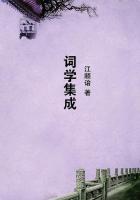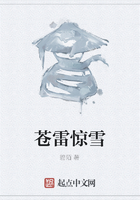The muffled drum's sad roll has beat The soldier's last tattoo;No more on life's parade shall meet That brave and fallen few.
On fame's eternal camping-ground Their silent tents are spread, And glory guards with solemn round The bivouac of the dead.
* * *
The neighing troop, the flashing blade, The bugle's stirring blast, The charge, the dreadful cannonade, The din and shout are past;Nor war's wild note, nor glory's peal Shall thrill with fierce delight Those breasts that never more may feel The rapture of the fight.
--Theodore O'Hara.
"REMEMBER THE ALAMO"
"Thermopylae had its messengers of death, but the Alamo had none." These were the words with which a United States senator referred to one of the most resolute and effective fights ever waged by brave men against overwhelming odds in the face of certain death.
Soon after the close of the second war with Great Britain, parties of American settlers began to press forward into the rich, sparsely settled territory of Texas, then a portion. of Mexico. At first these immigrants were well received, but the Mexicans speedily grew jealous of them, and oppressed them in various ways. In consequence, when the settlers felt themselves strong enough, they revolted against Mexican rule, and declared Texas to be an independent republic. Immediately Santa Anna, the Dictator of Mexico, gathered a large army, and invaded Texas. The slender forces of the settlers were unable to meet his hosts.
They were pressed back by the Mexicans, and dreadful atrocities were committed by Santa Anna and his lieutenants. In the United States there was great enthusiasm for the struggling Texans, and many bold backwoodsmen and Indian-fighters swarmed to their help.
Among them the two most famous were Sam Houston and David Crockett. Houston was the younger man, and had already led an extraordinary and varied career. When a mere lad he had run away from home and joined the Cherokees, living among them for some years; then he returned home. He had fought under Andrew Jackson in his campaigns against the Creeks, and had been severely wounded at the battle of the Horse-shoe Bend. He had risen to the highest political honors in his State, becoming governor of Tennessee; and then suddenly, in a fit of moody longing for the life of the wilderness, he gave up his governorship, left the State, and crossed the Mississippi, going to join his old comrades, the Cherokees, in their new home along the waters of the Arkansas. Here he dressed, lived, fought, hunted, and drank precisely like any Indian, becoming one of the chiefs.
David Crockett was born soon after the Revolutionary War. He, too, had taken part under Jackson in the campaigns against the Creeks, and had afterward become a man of mark in Tennessee, and gone to Congress as a Whig; but he had quarreled with Jackson, and been beaten for Congress, and in his disgust he left the State and decided to join the Texans. He was the most famous rifle-shot in all the United States, and the most successful hunter, so that his skill was a proverb all along the border.














